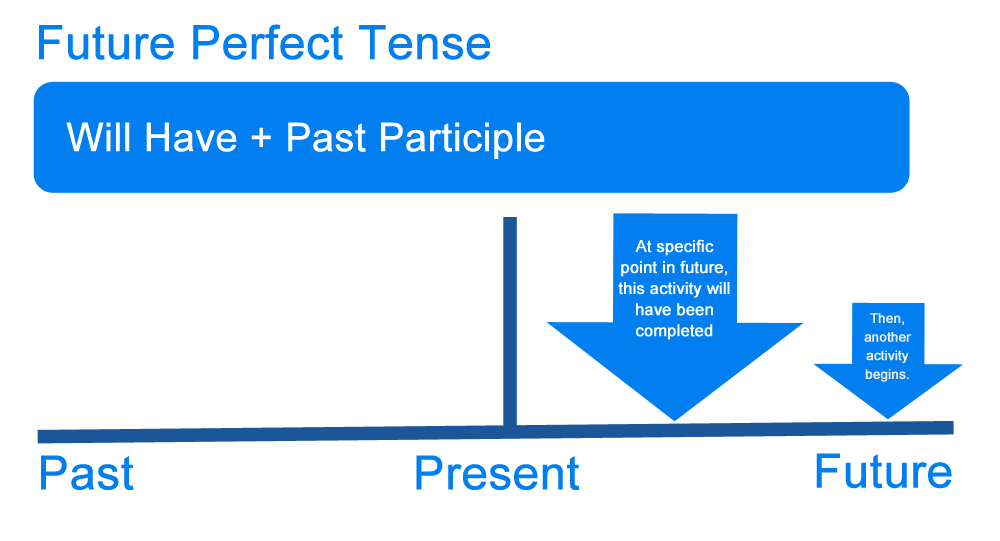The Future Perfect tense is used to talk about an event or action that will be finished before a certain event or time in future:
- They will have built the house (the house will be ready) by February. (‘by’ here means ‘before’)
Meaning
The Future Perfect tense indicates actions that are complete, or finished. These actions have not yet occurred but will occur and be finished in the future.
- Jack will have read all his books by next month.
Here’s an illustration of what the Future Perfect means.



- The next time you see me, I’ll have had a haircut.
- We are late! The play will have started by the time we get to the stadium.
When to use Future Perfect
The Future Perfect tense is only for actions that will be completed before a specified point in the future. In other words, the action you’re talking about must have a deadline. This deadline may be expressed either as a point in time or another action.



- By the time you finish dinner, I will have finished dessert.
- By this time tomorrow, he will have run the race.
Future Perfect structure
To make the Future Perfect, use:
will have + the Past Participle
| Note: For regular verbs, this is the “-ed” form of the verb. For the list of Past Participle forms of irregular verbs see the article about irregular verbs. |
| Singular | Plural |
| I will have (’ll have) finished You’ll have finished He/she/it ’ll have finished | We’ll have finished You’ll have finished They’ll have finished |
- When he leaves, they will have finished the movie.
- I will have been here for six months on June 23rd.
Negative forms
To make a negative form of Future Perfect, just insert ‘not‘ between ‘will’ and ‘have’ (you can also use ‘won’t’).
- We will not have eaten breakfast before we get to the airport tomorrow morning.
- You won’t have finished your report by this time next week.
Questions
To ask a question in Future Perfect, just swap ‘will’ and the subject of the sentence:
will + [subject] + have + the Past Participle
- Will you have eaten when I pick you up?
- Will they have finished decorating the float before the parade?
Check out this video from Learn English on Skype containing a simple explanation of Future Perfect:
See also: